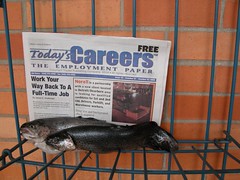Depending on whom you listen to, the latest jobs report was a bit of good news in a drab week or another sign of a still shaky economy that could teeter at any moment. Numbers can be dissected and spun to support nearly any viewpoint. The real question is what does it all mean for those seeking employment or looking ahead to future career opportunities?
Just as the scale is only one measurement of your overall health and fitness, the jobs numbers only tell one part of the story. Our economy has changed and while it will undoubtedly improve over time, it will never be the same. The same is true for the employment market.
Before the recession, there was already a shift happening in the employment market. Employers were no longer the long term caretakers of worker security and stability. Pensions had given way to 401(k)s, benefit costs were no longer fully subsidized but shared and positions could be moved, changed or eliminated at will. In the midst of this shift it also became easier for workers and companies to connect across time zones and even countries to get work done. Workers were no longer competing against the local professional but against a global talent pool more specialized than ever before.
The bottom line is that how we define and accomplish work has forever changed. We can wave our fists and rant about the disappearance of certain jobs and sectors or we can adapt and continue to prosper.
Knowledge is power and in this new economy it is also a highly valued good that is bought and sold across geographic boundaries. If your industry is offering fewer opportunities begin to think of ways you can leverage your experience and skills in new ways. In other words capitalize on what you know rather than what you do. You may be surprised at the number of ways you can create your own opportunity and in doing so become a valuable resource to others.




Follow Get Career Help!